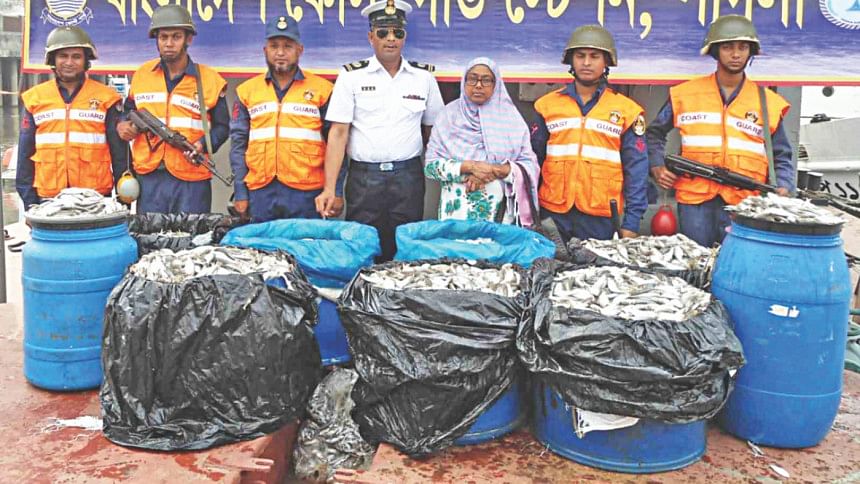Call on Myanmar, Bangladesh, India to conserve hilsa

Bangladesh, India and Myanmar must work together for better conservation, production and management of hilsa, as they produce more than 90 percent of global production, said officials at a regional seminar in Dhaka yesterday.
Bangladesh alone produces 60 percent, India 20 percent and Myanmar 15 percent of total hilsa in the world, they added.
There must be a proper trans-boundary unique management system involving the governments concerned for conservation of hilsa spawning; otherwise production cannot be boosted up, they observed at the first day of a two-day regional seminar.
Bangladesh Centre for Advanced Studies (BCAS), International Institute for Environment and Development (IIED), Darwin Initiative of the UK, and the Department of Fisheries (DoF) were the joint organisers of the seminar held at a hotel in the capital.
They aimed at focusing on a number of issues including ecological, biological and socioeconomic assessment for sustainable management of hilsa fisheries.
Utpal Bhaumik, former divisional head of Central Inland Fisheries Research Institute for the West Bengal government of India, observed that installation of a barrage at Farakka has completely intercepted the Hooghly-Bhagirathi migratory route of hilsa since 1975.
“A complete ban on hilsa fishing in and around 10km radius of the breeding ground at least during October-November should be enforced or to be declared as sanctuary. During this period designated hilsa fishers need to be given adequate compensation by the governments for their livelihood,” he added.
Without resolving fishermen's hardships, enforcement activities cannot be successful to increase production, said Syed Arif Azad, director general of DoF.
“In Bangladesh, we are working in two ways -- conservation of hilsa and incentives for the fishermen -- to increase production,” he added.
Dr Khin Maung Soe, deputy director for DoF of Myanmar, suggested that licensing of the fishing vessels be limited for the conservation.
Fisheries and Livestock Minister Muhammad Sayedul Hoque, who attended the seminar as the chief guest, said there is no alternative to seizing all illegal nets for conservation and more production of the fish.
“We are taking legal actions against all illegal attempts that hamper conservation of hilsa. As a result, production is now increasing,” he observed.
The minister expressed the hope that collaborative approach of Bangladesh, India and Myanmar would ensure interests of the respective governments in this regard.
Dr A Atiq Rahman, executive director of BCAS, chaired the seminar, which was addressed by, among others, IIED representative Essam Yassin Mohammed.

 For all latest news, follow The Daily Star's Google News channel.
For all latest news, follow The Daily Star's Google News channel. 








Comments